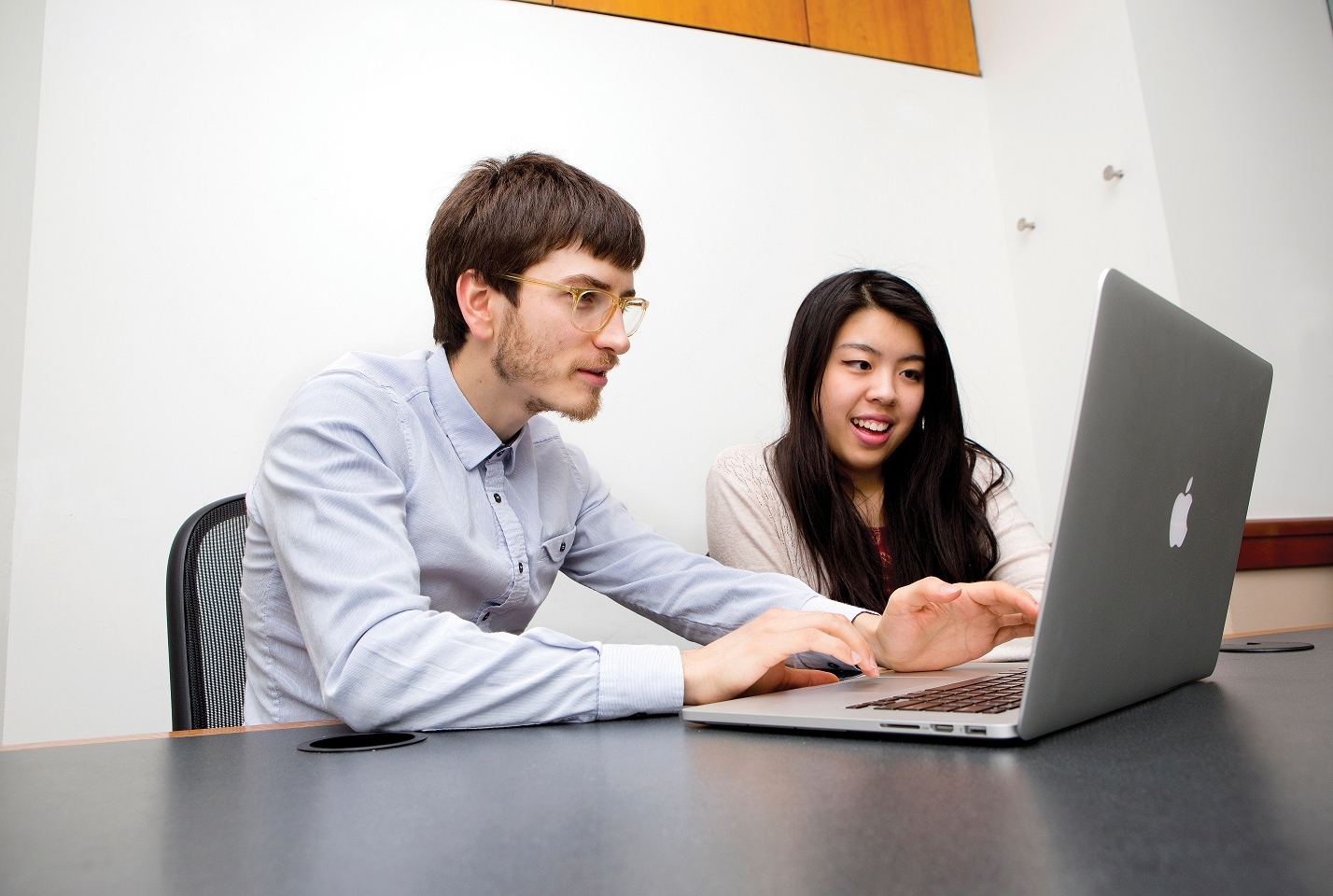Last fall, Stephanie Mach met once a week in graduate student Gabriele Campanella’s lab to write and edit computer code and pore over statistical data. They kept at it for two and a half months, sitting side by side for hours at a time. Their goal was to create, as a diagnostic aid, an algorithm capable of pairing high-definition images of cancer cells with genetic mutations normally associated with them.
For Campanella—a second-year student in physiology, biophysics and systems biology at Weill Cornell Graduate School of Medical Sciences—Mach provided a second set of eyes as Campanella worked to further his research into how to best use technology to help diagnose and treat cancer. But for Mach, the collaboration was something even more special: a rare opportunity to gain hands-on research experience in an academic laboratory as a high school junior.
A student at Brooklyn Technical High School, Mach worked with Campanella through the Weill Cornell Science Immersion Program (WCSIP), a partnership between Weill Cornell Medicine and the New York Hall of Science, an interactive science museum in Queens. Founded in 2014, the mentorship program brings New York City high school and college students into the lab with a graduate student or postdoc for two hours a week for 10 weeks. “The goal was to create a rich extracurricular science program to help open students’ minds to the possibility of a career in STEM,” says neuroscientist Dr. Ali Cohen, PhD ’17, who co-created the program with pharmacologist Dr. Sara DiNapoli, PhD ’17. “In particular we wanted to involve students from underserved communities who might have fewer opportunities to get involved in hands-on science.”
The program is open to students age 16 or older who work as Hall of Science “Explainers”— docents who teach visitors about exhibits. Over the course of their 10-week experience, WCSIP mentees receive guidance in developing and performing an experiment with their mentors, interpreting the results and presenting their work. Last year, they researched the molecular mechanisms of cell death, neuromuscular diseases and the diagnosis and treatment of Alzheimer’s. Students and mentors used new computational technologies to help accrue more data related to these critical areas of cancer research to add to scientists’ global pool of knowledge. “Getting the Explainers into the lab opens up a whole new experience,” says Dr. Cohen. “Our program allows students to really immerse themselves in science—learning research techniques, reading scientific literature and then presenting their own research.”
The program’s current coordinators—graduate students Chenura Jayewickreme and Clair Geary, who took the reins from Dr. Cohen and Dr. DiNapoli last year—match mentors and mentees based on shared interests and scheduling availability; at the end of each session they solicit feedback with the aim of improving the program. Since last year, WCSIP’s organizers lengthened its duration and gave mentors more extensive training on what to expect and how to interact with mentees. Now, their major focus is expanding the program so more students can benefit from it: 12 mentor-mentee pairs participated in 2015, and in 2016 there were 17. About 85 percent of mentees come from underserved minority communities and might not otherwise have access to immersive science programs, say the program’s leaders, who note that such early lab experiences can make the difference when it comes to deciding whether to pursue a career in the STEM fields. “If a student has never had early opportunities to see how exciting and valuable research can be—and to see that they can be successful at it—he or she may shy away from the sciences,” says Jayewickreme. “We don’t want that to happen. We need more young scientists.”
Getting early, hands-on exposure to research was a major attraction for Mach, who plans to pursue a career in life sciences and has been taking high school courses in organic chemistry, chemical engineering and forensic analysis. “What stood out to me about the program was its flexibility and opportunity for personal STEM exploration,” she says. “The information Gabriele was working with was intimidating, but working in his lab was the intellectual challenge I was searching for.” And while WCSIP is primarily designed to aid the young students, it has some fringe benefits for mentors: Campanella, for one, says WCSIP has helped make him a better scientist. “Every time I explain my ideas,” he says, “it gives me a deeper understanding of them.”
— Erica Cirino
This story first appeared in Weill Cornell Medicine, Vol. 16. No. 3

